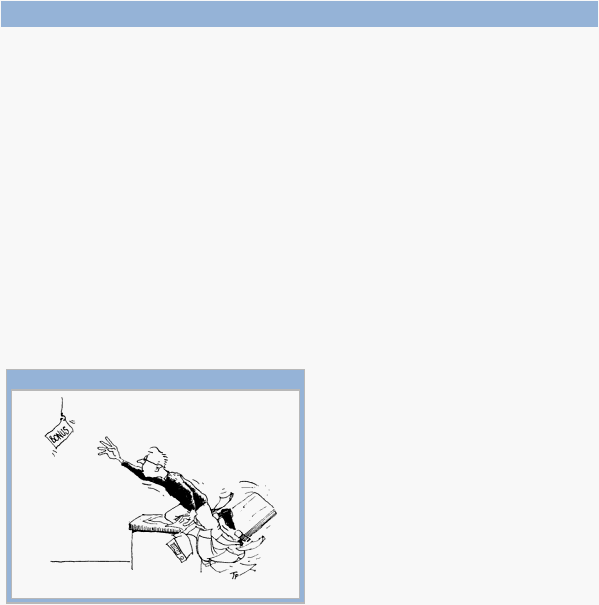

Project Team Rewards
Literature Review
9
Figure 3: "Get the Bonus"
According
to
Sprenger
(2002)
people
getting
rewards,
tend
to
focus
only
on
getting
the
reward
and
not
doing
the
task
itself.
This
means,
people
will
not
ask
themselves
'how
can
I
do
the
task
as
good
as
possible?',
they
will
ask
'how
can
I
get
the
reward?'.
In
theory
the
answer
to
the
latter
question
is
'by
doing
the
task
as
good
as
possible'.
In
practice
the
answer
is
'by
giving
my
assessor
the
perception
I
did
the
task
as
good
as
possible'
which
finally
often
means,
the
task
is
not
done
as
good
as
it
could
have
been
done.
The
picture
was
adopted
from
Sprenger
(2002:95)
3.2. Perspective One: Extreme Reward Opponents
Extreme reward opponents such as Alfie Kohn (1991a+b, 1993a+b, 1998, 2002) refuse
the use of rewards completely. Accordingly, they are only concerned with the first reward
question. The remaining five reward questions are irrelevant to them since rewards should
not be used at all. The opponents’ main argument is that rewards do not motivate
employees. The argument is based on a so-called “corruption effect” of extrinsic
motivators such as rewards (Deci 1975 in Kunz & Pfaff 2002:276). The corruption effect
describes that providing extrinsic motivators to employees automatically decreases their
intrinsic motivation to work. The corruption effect is supposed to be that strong, that the
overall motivation is lower as if no rewards were provided. Hence, employers should
solely focus on increasing the employees’ intrinsic motivation (Kohn 2002). This
statement is supported by “two dozen studies” showing that people work better without
rewards (Kohn 1993b:11).
Figure 3: "Get the Bonus"
The opponents’ argument is supported
by Herzberg’s two-factor theory
(Herzberg 1968). Herzberg’s two-factor
theory states that money does not
motivate employees but only satisfies
them (see Appendix IV:
Herzberg’s Two-
Factor Theory, p. 92, for more details).
Consequently, employees are dissatisfied
if they get low wages but still may have a
high motivation to work if the intrinsic
motivators such as responsibility or
achievement are high. In contrast,
employees are satisfied if wages are high
but may be still not motivated to work if
the intrinsic motivators are absent.
| Please note: All rights of this webpage are reserved. No part of this webpage may be reproduced, stored in a retrieval system, or transmitted in any form or by any means electronic, mechanic, photocopying, recording or otherwise without the prior written permission by the author. This html version of the book Project Team Rewards: Rewarding and Motivating your Project Team is not suitable for referencing since page numbers and layout may differ from the original book. Layout flaws are due to converting difficulties from the original file format to html and are not present in the paper copy of the book. |

